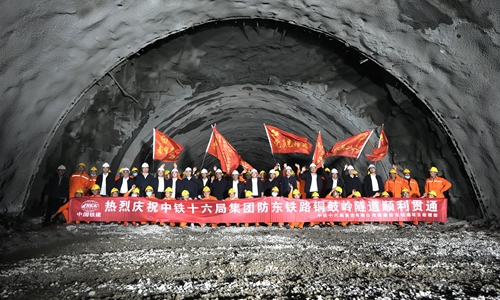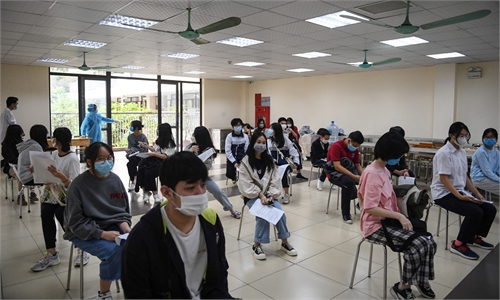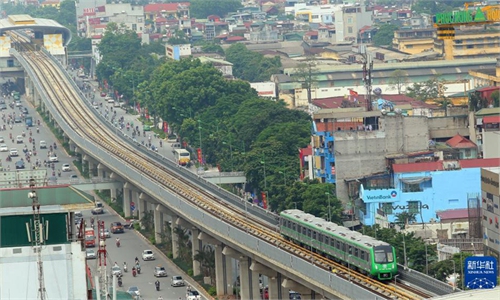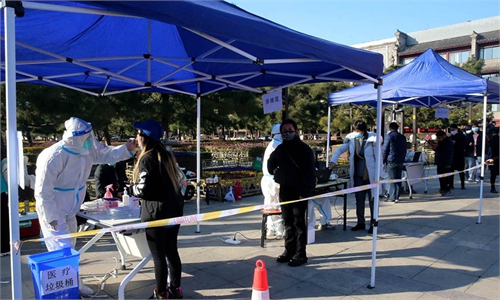ARTS / ART
Stimulus package heralds prosperous New Year for Vietnam’s workers
Holiday boost

A farmer arranges flowers for export at the Sa Dec flower village, the largest flower supplier in southern Vietnam's Mekong Delta region, on January 22, 2021. Photo: VCG
In a bustling Hanoi flower market, factory worker Hoang Thi Lan is looking for a kumquat tree as decoration for Tet, or the Vietnamese New Year.In recent months, she has been forced to cut her spending. Being disrupted due to COVID-19 means even less money than usual. Festivities were not a priority.
On January 11, the National Assembly of Vietnam, the country's top legislature, passed a package worth nearly 350 trillion Vietnamese dong ($15 billion) to support those affected by the pandemic and revive the economy.
The policies will "take the initiative in the prevention of COVID-19 and timely support for sustainable socio-economic development," to help Vietnam achieve the economic growth target of 6.5-7 percent per year in the 2021-25 period, top legislator Vuong Dinh Hue said while announcing the approval.
The stimulus will focus on health care, social security, employment and businesses fiscal and monetary policies, and increasing public investment.
In 2021, the Southeast Asian country posted a modest gross domestic product expansion of just 2.6 percent, the lowest in a decade. Its economy was estimated to have lost some 37 billion dollars due to the pandemic, instead of growing 7 percent per year in the past two years as previously expected.
"Through impacts on consumption, labor and production, the policies will solve people's social security needs and prop up the economy in the short term," Vo Dai Luoc, former head of the Hanoi-based Institute of World Economics and Politics under the Vietnam Academy of Social Sciences, told the Xinhua News Agency.
Among the most direct measures, a value-added tax cut from 10 percent to 8 percent has been welcomed by consumers and businesses.
"I understand that prices will be lower and we will be able to buy a little more with our money," said factory worker Lan, 38, who also hopes for help with her rent.
The package includes 6.6 trillion dong for workers to pay for their housing.
Supporting businesses is an important part of the package. Tourism is among the sectors worst hit with 2.5 million workers either losing their jobs or having their income reduced, according to the Vietnam National Administration of Tourism.
The package sets out to stimulate demand for domestic tourism. Nguyen The Tuong, 41, manager at a Hanoi travel agency, has high hopes.
"Many items in our packages such as food, transportation, accommodation, are eligible for tax reductions," he said.
His businesses can also take out low-interest loans.
"After two years of frozen operations, we need money to recruit and get the business started again," Tuong said.
The stimulus targets long-term sustainable effects in creating new growth engines in infrastructure, digital transformation, science and technology.
The measure also includes 176 trillion Vietnamese dong in infrastructure projects for 2022-23. Areas such as the green economy and digital transformation are the keys to sustainable development.
To ordinary Vietnamese people, the support comes at a welcome time, just as the Vietnamese New Year approaches. But before targeting long-term effects, "urgent" policies are mostly health-focused including investment in grass-root facilities and central hospitals, as well as paying for vaccines and medical supplies.




